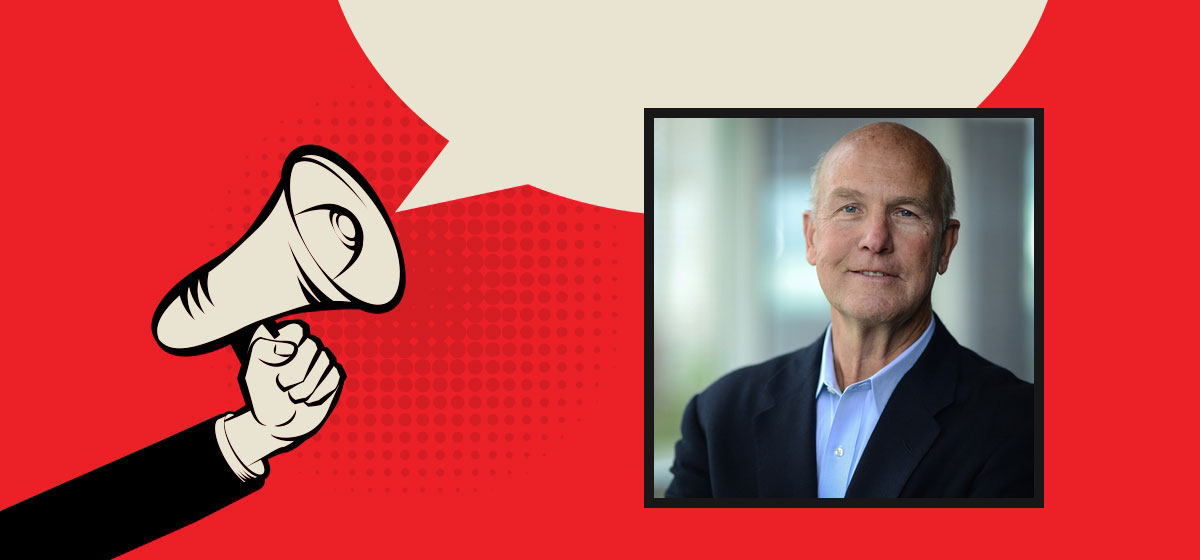Passion and Independence: Two More Critical Requirements for Leaders

Editor’s note, updated April 14, 2021: Last Friday, April 9, 2021, brought the unexpected passing of Tom Flannery, managing partner of the Pittsburgh office of Boyden, the international search firm. Tom was, to my mind, the leading headhunter in Pittsburgh, having placed untold numbers of local CEOs, nonprofit leaders and board members over the past 25 years. He was also a close friend and one of Pittsburgh Quarterly’s original advertisers. Tom’s ability to size up leaders and match them with prospective organizations was deep and nuanced — what you would expect from someone with vast life experience and great people skills. Today, in his memory, we’re publishing his response when we asked him and four other leaders: What do you believe to be the most important ingredients of successful leadership?
If you think about the leaders who have arisen in the last several hundred years, you will quickly conclude that they come in different packages. Gender, color, ethnicity and body shape are as inconsequential to leadership as are, unfortunately, integrity and a strong moral compass. George Washington and Joseph Stalin were both effective leaders, but one of them had qualities most of us admire and the other was a sociopath—a common disorder among bad leaders.
To me, the three most important ingredients of leadership in the abstract are courage, vision and the ability to communicate effectively. Leaders acquire that moniker because they have the courage to express their views in a public forum, blaze new trails and are able to attract followers by effectively articulating their messages. If you think of recent leaders, good and bad, Winston Churchill, Martin Luther King, Angela Merkel, Mother Teresa on the good side; Saddam Hussein, Adolf Hitler, Hugo Chavez and Mao Zedong on the bad side. I think most of us will agree that they all possessed those three critical ingredients.
To create what most Americans would consider a great leader, you have to ditch the sociopathic behavior and substitute the leader’s compulsion to put the organization he or she is shepherding in front of himself or herself. That requires integrity, a strong moral compass, self-sacrifice and a dash of humility. George Washington was the best example I can think of, but I would put Sid Crosby in that league as well.
Regarding the question about whether leaders are born or made, I think courage can be summoned by most people, given the right situation. Vision is a gift bestowed on a small percentage of the population, and the ability to communicate is an acquired skill. Given that, I hope the people who are possessed of all the right qualities to be great leaders will step up. The world could use a little leadership at the moment.
* * *
In a recent essay on leadership for Pittsburgh Quarterly, I listed several characteristics that I believe define great leaders. Among them were courage, vision and the ability to communicate. I realized last week that I omitted two important characteristics from the list after taking part in a couple of well-attended forums designed to increase diversity on corporate boards. Both events took deep dives into the subject of leadership because the participants wanted to more fully understand what boards are looking for in their directors. There were speeches and panel discussions and a lot of dialogue among the people attending, including quite a few CEOs and incumbent corporate directors. After two days of mostly observing, I concluded that two additional characteristics, passion and independence, also belong on the list.
Passion is most likely the genesis of leadership, starting as the inkling that grows to a belief that becomes the driver of a leader’s ascent to the top. One of the speakers at the first forum, an African American magazine publisher and public company board Chairman, was clearly passionate about bringing diversity not only to the board of the company he chairs, but to the management ranks as well. He was the most effective advocate in the room because of the uninhibited zeal he displayed. While I am sure a few people in the audience thought he may have been over the top, the statistics he quoted proved how effective he was in changing the company’s culture.
Independence is more complex but is the characteristic that allows leaders to follow the road less traveled. When told, “This is the way we’ve always done it,” independent thinkers will look for another way to do it. I’m still trying to figure out if independence is born of courage or is an innate characteristic in some people. But in any case, leaders typically are able to act independently in situations while followers feel pressure to adhere to accepted norms even if those norms are distorted or misrepresented.
After two days of talking with a lot of people aspiring to reach those lofty positions, I concluded that only a few of them had all of the traits that I’ve mentioned here. The most common was the ability to communicate, followed by the courage to take the risks that advancing one’s career demands. Vision, passion and independence seemed to be in shorter supply. The people who had all of them stood out from the crowd and were as impressive in the way they handled themselves at the meetings as they were in their long lists of accomplishments.


